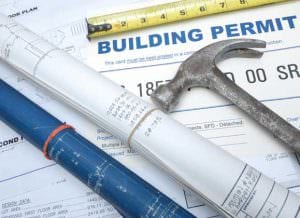Risks of Remodeling Without a Permit

In order for the homeowner to receive a permit, the homeowner or his/her designee are required to file plans and pay fees to the city. In addition, the improvements are given a value. If they increase the value of the property, this may result in an increase in property taxes. Inspections are often required, and this means having to schedule and then wait for inspectors to approve the work to be done. This process can be time consuming and inconvenient in the short run. It is for this reason that some homeowners skip the permit process.
If a permit is needed and you fail to get one, the city may discover this at some time in the future and getting a permit retroactively can frequently be significantly more expensive and much more problematic than having obtained the permit before work commenced. If work is not done in accordance with city procedures or if the inspector is unable to determine if the work has been done properly, the homeowner could be required to open walls, tear up floors, so that the inspection may take place. In addition, by law, work not permitted where a permit was required must be disclosed to any prospective purchaser. This may cause the owner to discount their sale price or perform costly or time-consuming repairs before title can be transferred.
For prospective buyers of a property, save yourself the future hassle and loss of money by researching whether all work on the premises has been done according to code and with the proper permits. You may obtain these permits by going directly to Building & Safety in the municipality in which the property is located or by hiring a “permit puller” who will research the permits for you.


